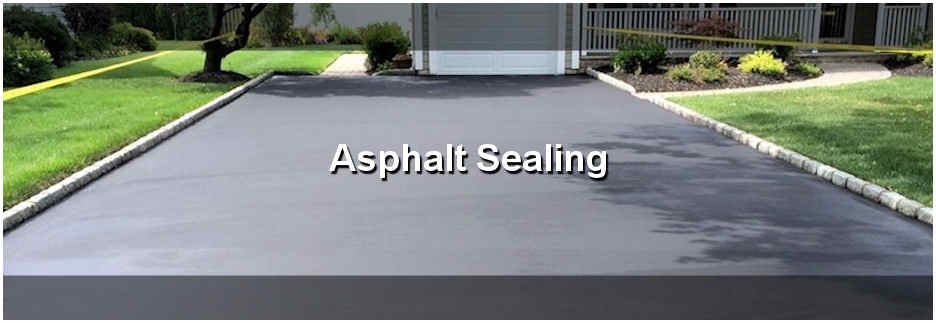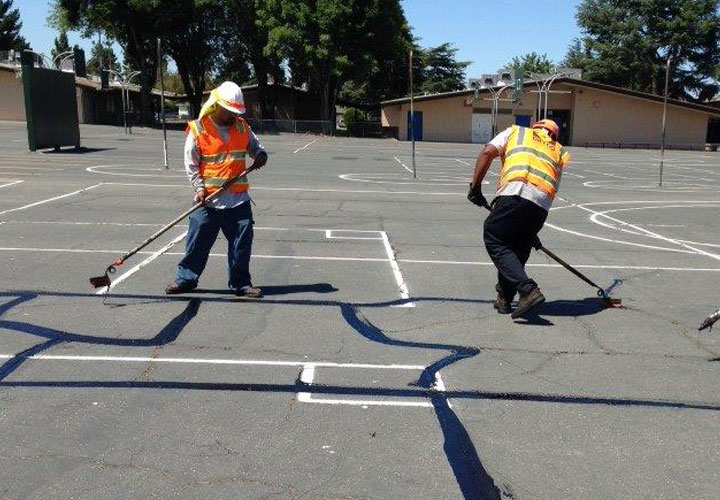Lengthen Sidewalk Life-span: Cutting-edge Cold Mix Asphalt Sealing
Lengthen Sidewalk Life-span: Cutting-edge Cold Mix Asphalt Sealing
Blog Article
Cold Mix Asphalt Vs. Hot Mix Asphalt: Which Is Right for You?

Structure Differences
Cold mix and warm mix asphalts vary dramatically in their structure, with unique characteristics that affect their efficiency and applications. Cold mix asphalt is produced by emulsifying the asphalt binder with water and an emulsifying agent prior to mixing it with aggregate. This technique enables the asphalt to be practical at lower temperature levels, making it excellent for temporary repair work and for usage in cooler weather condition conditions. Hot mix asphalt, on the other hand, is made at high temperature levels, usually in between 300-350 ° F, which helps to achieve much better compaction and an extra long lasting last product. The hot mix asphalt manufacturing procedure includes heating up the aggregate and asphalt binder independently prior to integrating them at the asphalt plant.
Moreover, cold mix asphalt has a tendency to be less thick and more versatile than hot mix asphalt. This versatility makes it far better matched for locations with greater levels of movement, such as driveways or roadways with heavy website traffic. On the other hand, hot mix asphalt is known for its high sturdiness and resistance to rutting and fracturing, making it a recommended selection for freeways and high-traffic roads where long life is vital.
Setup Refine Variances
The process of installing cool mix and warm mix asphalt displays remarkable variances in their treatments and needs. In comparison, warm mix asphalt necessitates a more fancy installment process. Due to the home heating requirements, hot mix asphalt installations are typically lugged out by professionals with specialized equipment, making certain a more long-term and structurally sound outcome.
Toughness and Long Life Factors
When taking into consideration asphalt alternatives, resilience and long life are essential factors to examine for enduring pavement efficiency. Warm mix asphalt (HMA) is understood for its outstanding sturdiness and longevity.
In regards to long life, HMA typically outshines CMA due to its premium strength and resistance residential or commercial properties. HMA pavements have a longer solution life, needing much less frequent fixings and upkeep, which can translate to set you back savings in the lengthy run. In addition, HMA sidewalks are much more conveniently personalized to satisfy specific job requirements, additionally enhancing their toughness.
Expense Factors To Consider
Taking into consideration the monetary effects is a vital aspect when reviewing the selection between hot mix asphalt (HMA) and cold mix asphalt (CMA) for pavement jobs. While the preliminary cost of hot mix asphalt is normally greater than that of cold mix asphalt, HMA frequently gives a more economical remedy in the lengthy run due to its exceptional sturdiness and longevity.
In enhancement to material expenses, it's essential to consider the costs connected with installation and maintenance when comparing HMA and CMA. Eventually, the choice in between HMA and CMA ought to take right into account not simply the preliminary price but official website additionally the long-term economic implications to identify the most cost-effective alternative for the details pavement project.
Environmental Effect Comparison
Contrast of the ecological influences in between hot mix asphalt (HMA) and chilly mix asphalt (CMA) exposes unique distinctions in sustainability practices. HMA production needs high temperature levels, leading to raised energy intake and greenhouse gas discharges.
Additionally, the usage of CMA often entails this content recycling existing asphalt pavement, promoting source conservation and reducing the quantity of waste sent out to land fills. By opting for CMA over HMA, roadway construction projects can add favorably to ecological conservation initiatives.
Final Thought
In final thought, the option in between cold mix asphalt (CMA) and warm mix asphalt Check Out Your URL (HMA) depends on different elements such as make-up, installment process, sturdiness, durability, expense, and ecological effect. asphalt repair. While CMA offers a fast and economical solution for small repairs, HMA ensures exceptional resilience and longevity for hefty web traffic locations. Think about these variables meticulously to determine which sort of asphalt is the appropriate choice for your paving needs

Considering the monetary implications is a vital facet when assessing the selection between hot mix asphalt (HMA) and cool mix asphalt (CMA) for pavement tasks. While the initial price of warm mix asphalt is usually greater than that of cool mix asphalt, HMA commonly gives a much more economical service in the long run due to its superior longevity and durability. angle parking.Contrast of the environmental influences in between warm mix asphalt (HMA) and cool mix asphalt (CMA) reveals distinctive differences in sustainability practices.In final thought, the selection between cold mix asphalt (CMA) and warm mix asphalt (HMA) depends on different factors such as composition, setup procedure, toughness, durability, cost, and environmental impact
Report this page